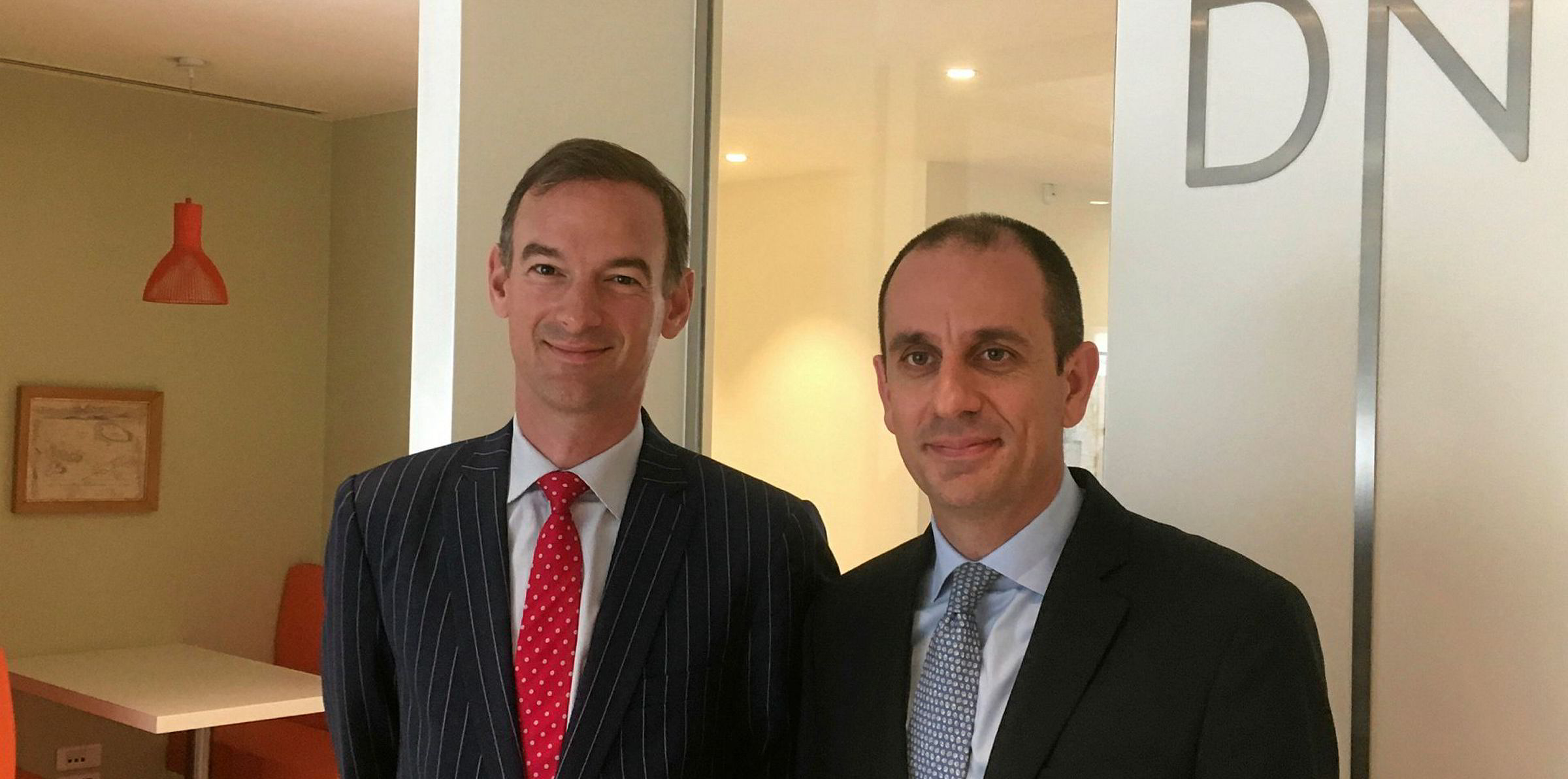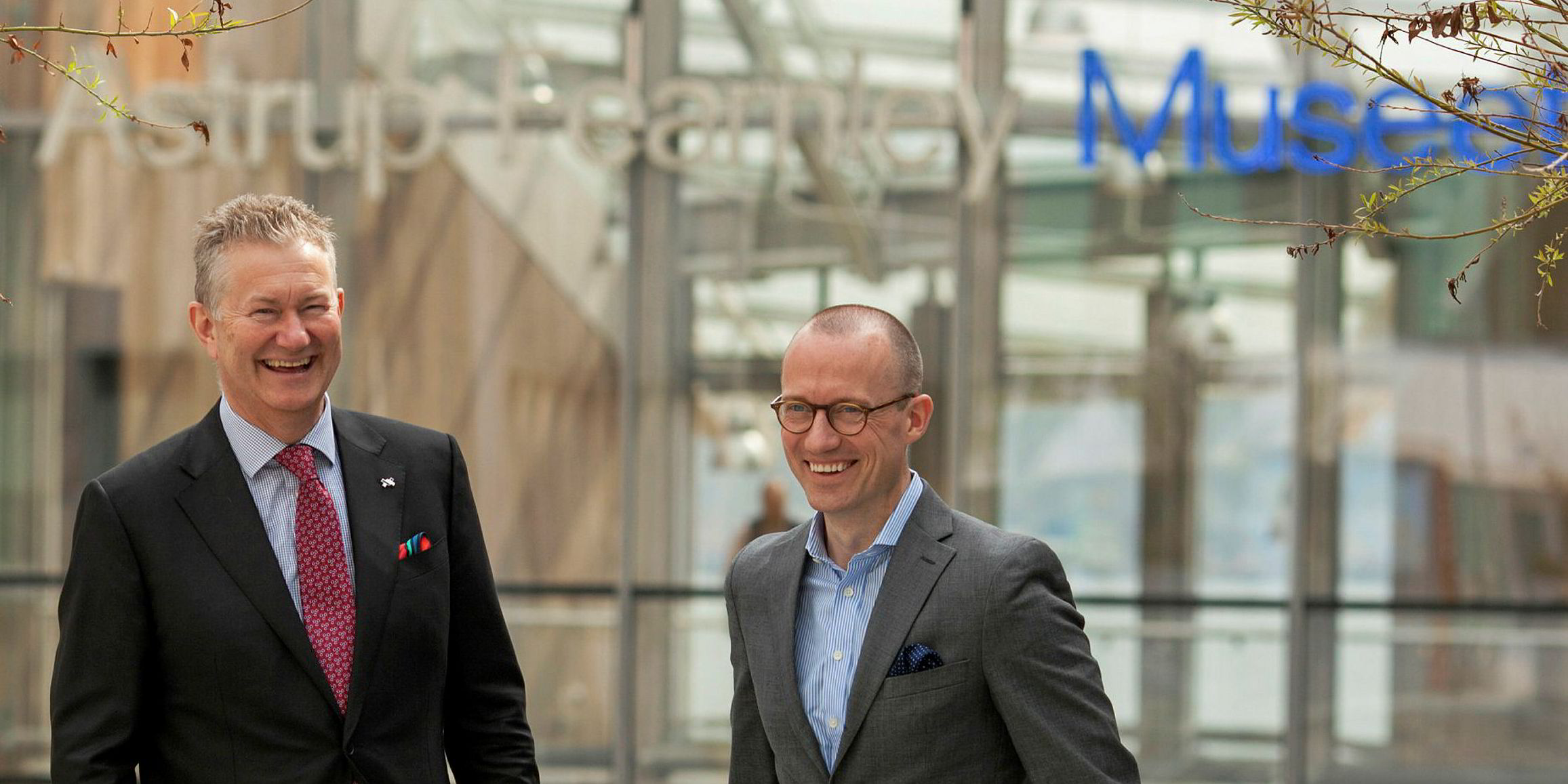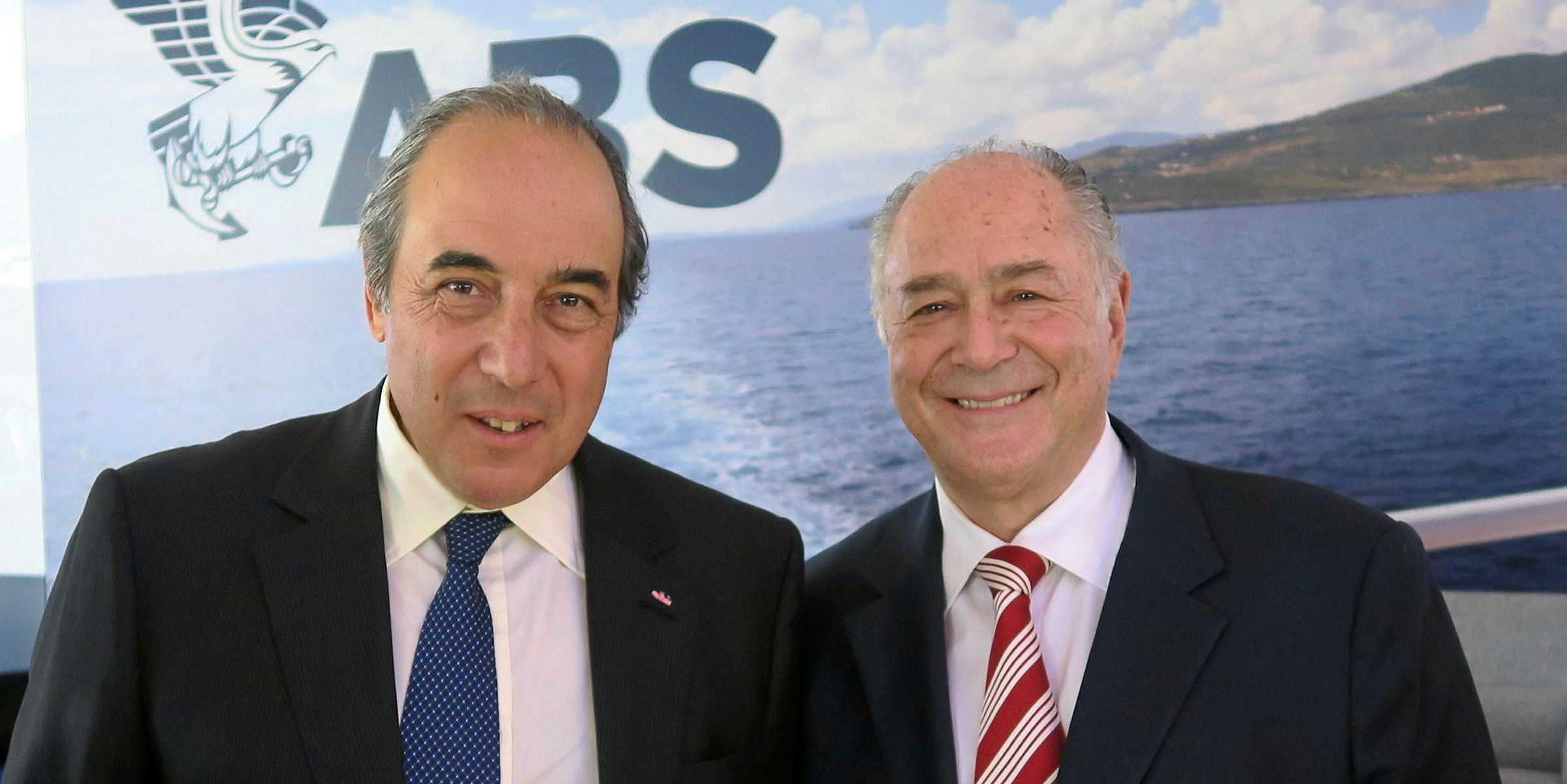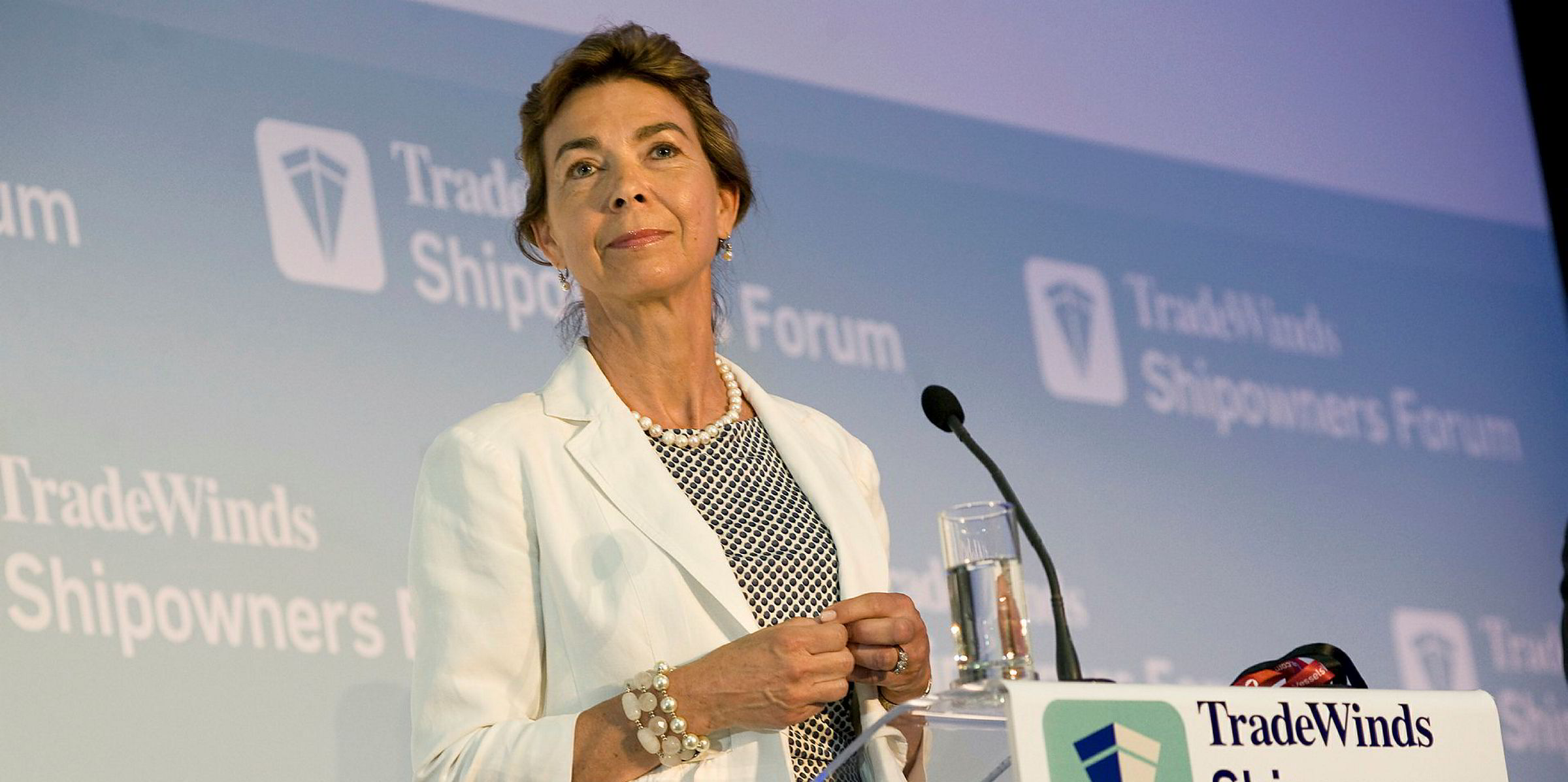A GasLog bond sale last week was characteristic of DNB’s move towards fresh forms of corporate finance in recent years, leading executives at Norway’s largest bank tell TradeWinds.
And, they say, similar deals are in the pipeline.
Oslo-based DNB was a joint book-runner on the $75.3m transaction for the Peter Livanos-run company.
The sale was the latest in a series of equity and bond-related deals worth $2.2bn that the bank has co-arranged over the past 12 months, says Kristin Holth, DNB global head of ocean industries, which includes shipping.
Freeing up liquidity
Such deals more than compensate for a reduction in DNB’s traditional shipping loan portfolio, which has dropped by about half since 2015, to NOK 71bn ($10.6bn) at the end of 2018, according to its latest annual report.
“We do more business and earn more money today than we did five years ago,” she tells TradeWinds in an interview at DNB’s Athens office.
Holth says the reduction of the shipping portfolio has been a managed process to free up liquidity and manpower for more versatile and lucrative financial deals with a select group of clients.
The company has called this process a “rebalancing” of its shipping, oil and offshore-related portfolios that has now been “completed”, according to its annual report.
“We have made ourselves less dependent on just the banking markets because clients themselves have become less dependent on them,” Holth says.
DNB policy throughout this rebalancing has been to focus on the top 100 shipping names worldwide, with a view to concluding all kinds of financial and advisory deals with them. This can range from straight lending to bond and equity issues, to export credit and Chinese leasing deals.
We have made ourselves less dependent on just the banking markets because clients themselves have become less dependent on them
Kristin Holth, DNB’s global head of ocean industries
Traditional shipping loans remain a core business, with DNB having agreed about 60 loan or refinancing deals over the past 12 months worth $3.2bn.
However, this business is no longer the only game in town.
Legs to stand on
“You need to have other legs to stand on, apart from lending,” says Christos Tsakonas, global head of shipping. “The banks that will survive are the ones that will have a complete offering.”
The executives declines to disclose the hike in DNB’s investment bank-related fees over past years.
However, Tsakonas says DNB has “a very big pipeline” of bond deals coming, with several companies currently on [a] roadshow.
“This market had been shut for the first few months of the year but it’s opening now — you need to have the ability to utilise these windows while they’re open,” he says.
DNB has not only maintained the strength of its dedicated ship lending team over the past few years, but bolstered it with investment banking specialists and equity analysts in Oslo and New York.
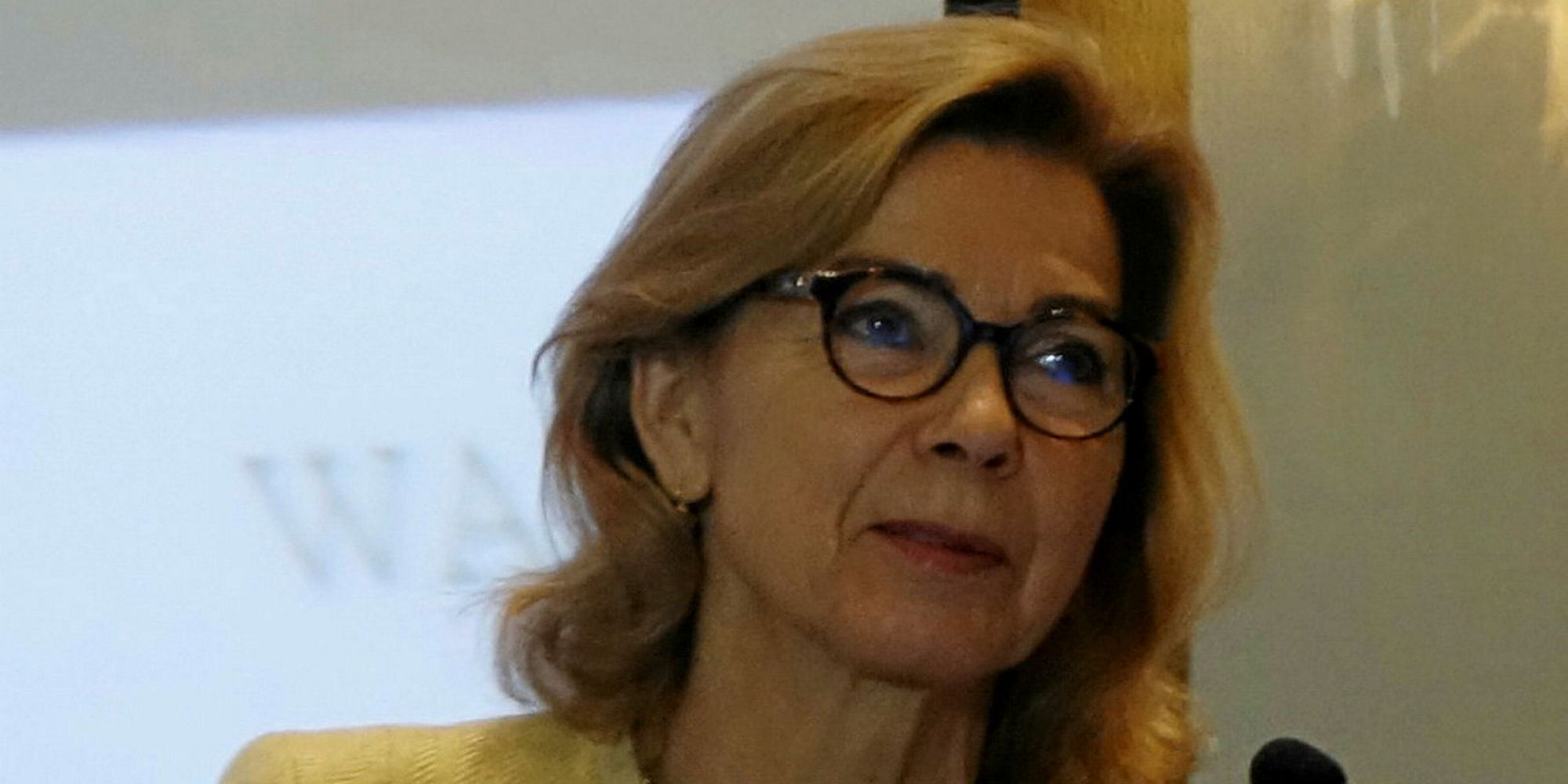
But the company admits it has some catching up to do in leasing.
“We need to be stronger and cooperate with the Chinese leasing houses,” Holth says.
DNB held a seminar in Shanghai last week to strengthen its position, bringing together the biggest Chinese leasing companies with about 40 of its clients. The aim was to provide both advisory services on leasing structures and potentially co-finance some of them.
The drive towards alternative finance is also highlighted by the bank’s choice of hire to head its operations in Greece, which the Oslo-based bank considers a strategic market.
DNB has selected Passchier Veefkind, a Dutchman who spent the past three years covering some of the bank’s biggest shipping clients out of New York, often in close collaboration with the investment banking team there.
We need to be stronger and we cooperate with the Chinese leasing houses
Kristin Holth, DNB’s global head of ocean industries
“I will build on these relationships to also offer to our local clients some of the products that we have in our global offices in Oslo and New York,” Veefkind says.
Transitional period
DNB has seven staff dedicated to Greek clients. To date, its Athens office has been led by Berend Paasman, who will remain in Greece for a transitional period before moving to London to take charge of the bank’s global logistics portfolio.
Greek shipowners are an “important group” in DNB’s overall business, the managers say.
They decline to quantify this further, as the company does not break down its shipping business by nationality. But about half of DNB’s clients are from outside Scandinavia.
“We have been doing business with the Greek shipping market in the 1990s, when we started becoming an international shipping firm,” Holth says.
In line with its global policy, DNB wants to focus on the top owners in Greece, where current clients include heavyweights such as Maran, Costamare, Dynacom and Safe Bulkers.
When it comes to determining which company counts as a top name, it is not just the size of a potential client that interests DNB.
Identifying names
“It’s a combination of who’s managing the company, what’s the history, how they have delivered over time and who managed to get through the cycles as a winner,” Holth says.
The strategy of focusing on companies rather than on a specific asset class has resulted in a balanced shipping loan portfolio, the mix of which has changed little over the years.
According to DNB’s first-quarter figures, 23% of its shipping loan portfolio consisted of crude oil carriers. Bulkers and gas carriers are a close second with a 22% share each. While containerships account for 11%, as do chemical and product tankers
